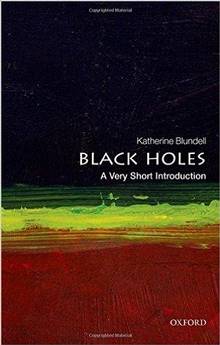Black holes : A very short introduction
Blundell, Katherine
Éditeur : OXFORD UNIVERSITY PRESS
ISBN papier: 9780199602667
Parution : 2015
Code produit : 1314678
Catégorisation :
Livres /
Science /
Physique /
Astrophysique
Formats disponibles
| Format | Qté. disp. | Prix* | Commander |
|---|---|---|---|
| Livre papier | En rupture de stock** |
Prix membre : 10,76 $ Prix non-membre : 11,95 $ |
*Les prix sont en dollars canadien. Taxes et frais de livraison en sus.
**Ce produits est en rupture de stock mais sera expédié dès qu'ils sera disponible.
Description
Click to enlarge Price: $11.95 Format: Paperback 144 pp. 111 mm x 174 mm ISBN-10: 0199602662 ISBN-13: 9780199602667 Publication date: November 2015 Imprint: OUP UK Share on Facebook Add to Favourites Tell a Friend Black Holes: A Very Short Introduction Katherine Blundell Series : Very Short Introductions Black holes are a source of wide fascination. In this Very Short Introduction, Katherine Blundell addresses a variety of questions, including what a black hole actually is, how they are characterised and discovered, to what happens if you get too close to one. Explaining how black holes form and grow across cosmic time, as well as how many there are in the Universe, she also considers how black holes interact with matter - by stealing material that belongs to other stars, and how black holes give rise to quasars and other spectacular, yet exotic phenomena in outer space.























